What is a Keto diet?
A ketogenic diet is popularly known as keto diet. It is a popular and proven effective dieting scheme worldwide, where dieters are suggested to reduce their carbohydrate consumption and instead they need to focus on their protein and fat intake.
The Keto diet gained popularity due to its ability to lose body fat quickly. People suffering from obesity or with excess unwanted body fat, may see great benefits from trying out a Keto diet, provided there is no history of heart disease or hypertension.
This diet is based on the theory of ketosis, where the human body doesn’t use the Citric Acid Cycle due to a lack of glucose from carbohydrates. So essentially the Keto diet is a high-fat, high-protein and low-carb diet, the reduction of carbohydrates induces the state of ketosis. As quality fat intake is a vital issue of this diet and both ghee and butter contain loads of fats, the question of butter vs ghee is an important issue for the users.
Ghee vs. Butter: What’s the Difference?
Ghee and butter are made up of diverse components. Butter on its own is included of butterfat (roiled from cream), water, and milk solids. Ghee, which is reduced from butter, is only made up of butterfat.
Unlike butter, ghee or clarified butter comprises no lactose and are very low in casein content, which makes them an perfect substitute to regular butter for those with dairy and lactose intolerance. Ghee can be used in different recipes that need solid fats, such as butter or coconut oil. However, ghee offers slightly nutty taste, which may enhance flavor of cooking in a different way.
Ghee vs. butter for keto diet should not be decided on its taste or for the fat content only. The utility of ghee is best assessed if all the ghee benefits are analyzed. Ghee offers good fats and its vitamin and antioxidant content is helpful for maintaining a good balance of energy, endurance, and immunity of body.
Read our blog- From aiding digestion to glowing skin: Use desi cow ghee as a home remedy

Buy Pure Desi Cow Ghee Online : Order Now. Free Shipping
Ghee Composition and its Role in the Ketogenic Diet
Fat content
A tablespoon of ghee has 14 grams of fat to butter’s 12 grams, and about a gram more of monounsaturated and saturated fats, the good fats, which brings us to MCTs.
MCTs
Ghee contains 25% or higher short-chain and medium-chain triglycerides (MCTs). Butter has around 12% to 15% (In comparison, coconut oil has 62% MCTs). Short to medium chain fats are more easily digestible, and the more easily digestible the fat is, the more accessible it is as an energy source: they are easily turned into ketones, which puts you faster into ketosis. Healthy fats that contain MCTs like coconut oil and ghee– and MCT oil itself– are highly desirable in the ketogenic diet and bulletproof coffee for their benefits in boosting energy and cognitive function. MCTs also reduce appetite, aid weight loss and also enhance cells at the mitochondrial level, lowering your risk of Alzheimer’s, heart disease, diabetes, autoimmune diseases, atherosclerosis, with proven benefits for epileptic patients.
The ketogenic diet and MCTs also help in cancer prevention. Cancerous cells feed on glucose. Replacing carbohydrates and sugars with healthy fats as your energy source starves cancer.
Why ghee is preferred for the Keto diet
Healthier option: ghee or butter
Ghee is a great substitute to regular butter that contains substantial amounts to lactose, because it is stripped from milk solids during the clarification process, leaving only healthy butter fats behind as residue. While ghee is a much healthier alternative to regular butter, it is still a kind of fat.
There are many reasons why it called:
- Ghee offers a higher smoke point than butter: 485°F (252°C) versus 350°F (177°C) for butter, which makes clarified butter a safer choice for cooking.
- Cow ghee offers better shelf life: Ghee is more shelf stable and can be preserved without refrigeration, saving you fridge space, which is not applicable for butter. You need to preserve butter in fridge.
- Ghee is suitable for those that are lactose intolerant: Ghee is clarified butter, so all the milk solids and proteins are filtered out. Many individuals with a lactose allergy can consume ghee fine but not butter.
- Ghee contains vitamins, butyrate, and CLA which are gut friendly and good for your health.
- Ghee contains Medium Chain Triglycerides (MCTs) and this is excellent in providing high energy levels and helps with cognitive functioning.
If you are targeting to consume the right kinds of fats and provide yourself with energy on a keto diet, cow ghee is a better choice than butter.
Read our blog – Why The Pure Desi Cow Milk Ghee Is Costlier Than Normal Ghee?
Buy Pure Desi Cow Ghee Online : Order Now. Free Shipping
Read our blog- HEALTH BENEFITS OF DESI COW GHEE THAT MAKE IT A MUST-HAVE IN YOUR KITCHEN

Ghee Improves Digestive Tract
Ghee is rich in butyric acid. A study reveals that people with unhealthy digestive tract do not naturally produce butyric acid. Since good digestion is a key to good health, it is necessary to incorporate foods rich in butyric acid into your diet to aid digestion. This acid nourishes cells in the intestines, reduces leakage of undigested food particles and helps in the repair of the mucosal wall.
Cooking with Ghee
The smoke point of ghee being much higher than butter makes it great for high-heat cooking, giving you another flavorful option for your keto cooking alongside bacon fat and coconut oil.
Much less acrylamide
Ghee also produces much less acrylamide compared with other oils with equally high smoking points. Acrylamide is a toxic compound that forms in some starchy foods when prepared in high temperatures (baking, frying, roasting).
What to do with ghee
Keto dieters report that ghee has a more buttery taste than butter itself, although some who switch discover it takes some getting used to. Experiment with your own favorite dishes. Here are some guaranteed delicious ways to start with ghee:
- Add to drinks: Ghee adds a rich, sweet and caramel flavor when added to coffee and other keto power drinks.
- Veggies and stir-fries: Brush ghee onto kale, bell peppers, broccoli, cauliflower. Or roast your veggies in ghee.
- Spices: Ghee makes garlic even more potent in deliciousness and also holds other spices well to give your keto dishes more kick and flavor.
Ghee has 10% more medium-chain fatty acids than butter and just a couple of grams more of fat, vitamins, CLA content. If you’re looking for a distinct flavor, pick ghee. As you experiment with ketogenic recipes and rich, natural flavors, you’ll discover which dishes you prefer with ghee and which ones pop with butter. Unless you have lactose intolerance, it’s not “either or.” Enjoy the benefits of both of these good fats in their healthy contribution to your ketosis.
BENEFITS OF GHEE IN KETO DIET
1. Keto-Friendly Diet
Ghee consists of a bit more fat than butter and produces slightly more butyric acid and other fatty acids. Consisting of only minimal amounts of carbs, ghee can be added to a keto-friendly diet. Ghee is also a rich source of Vitamin A and E which are fat soluble vitamins.
2. Substitute of Butter
Ghee consists of no milk protein casein and the milk sugar lactose as compared to butter, which contains a minimum quantity of both. Those who have allergies and sensitivities to these dairy products, ghee consists of an advantageous substitute..
3. Benefits during Cooking
Research has shown that as compared to veggie oils, ghee is made using all the natural processes as compared with vegetable oil, making it a much better alternative for everyday cooking and consumption.
4. Supports in Weight Loss
Research has displayed that ghee has more conjugated linoleic acid as compared to butter, a polyunsaturated fat that might trigger fat loss. The butyric acid found in ghee and a medium chain triglycerides in ghee aids in mobilizing stubborn body fat and getting rid of it.
5. A balm for Skin
When benefits go beyond cooking with ghee, it turns out some people use ghee topically as a cream for burns, itching, rashes, or wounds. Studies have confirmed the antimicrobial and antioxidant activity, moisturizing and healing properties of ghee for the soothing skin.
6. Anti-Inflammatory Properties
Studies show the type of vitamins and fats found in ghee might decrease inflammation and promote gut healing improving digestive health. Inflammation can cause various health conditions followed by a variety of diseases.

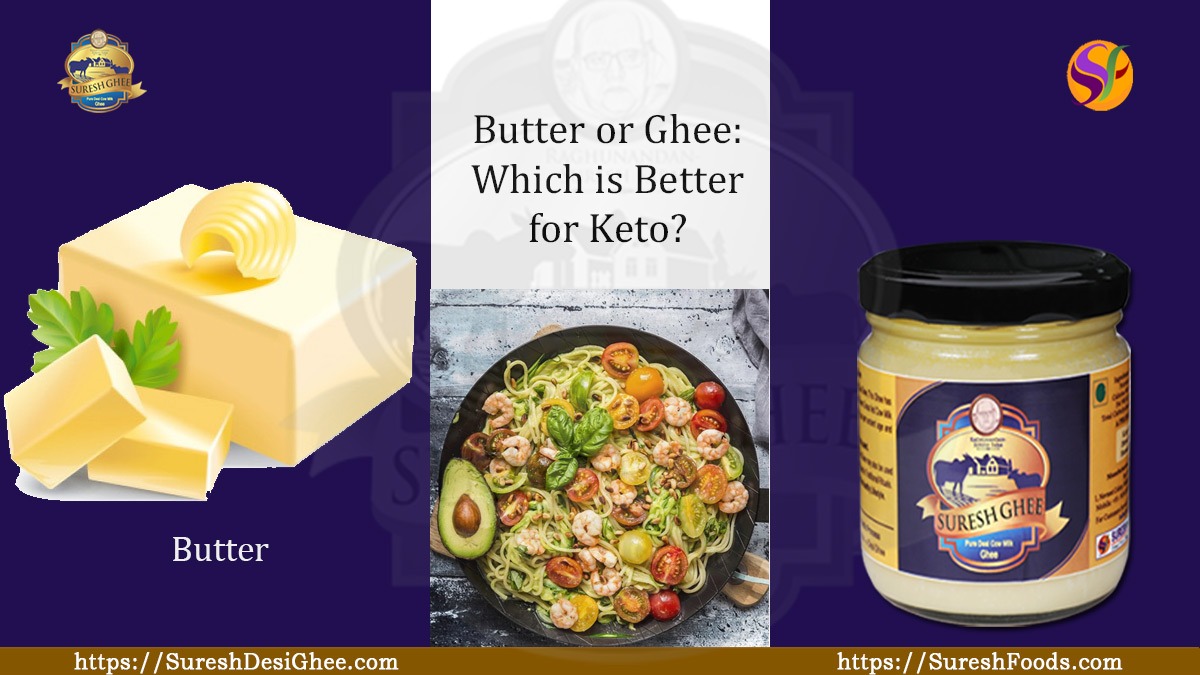
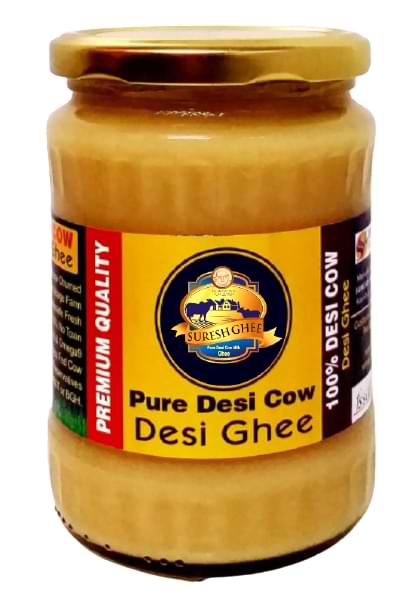
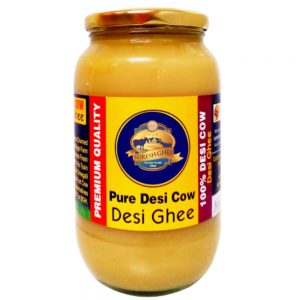
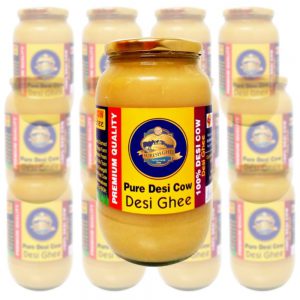
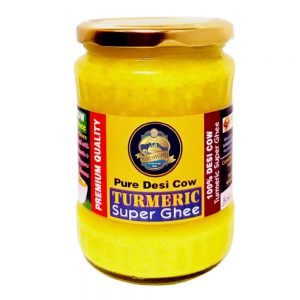
 WhatsApp us
WhatsApp us 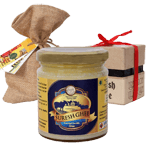
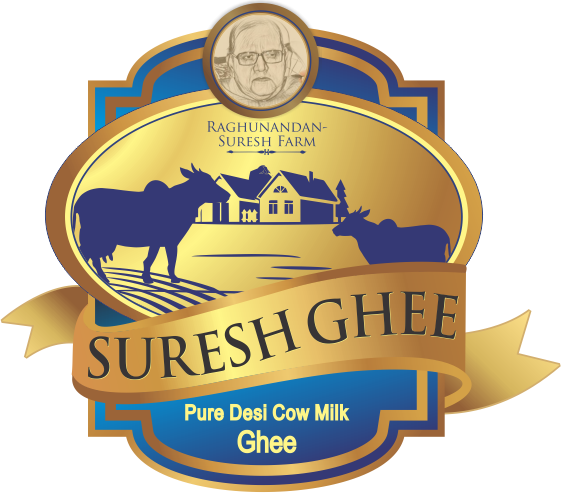
Naveen m...